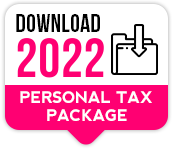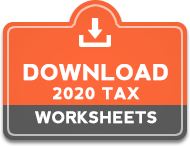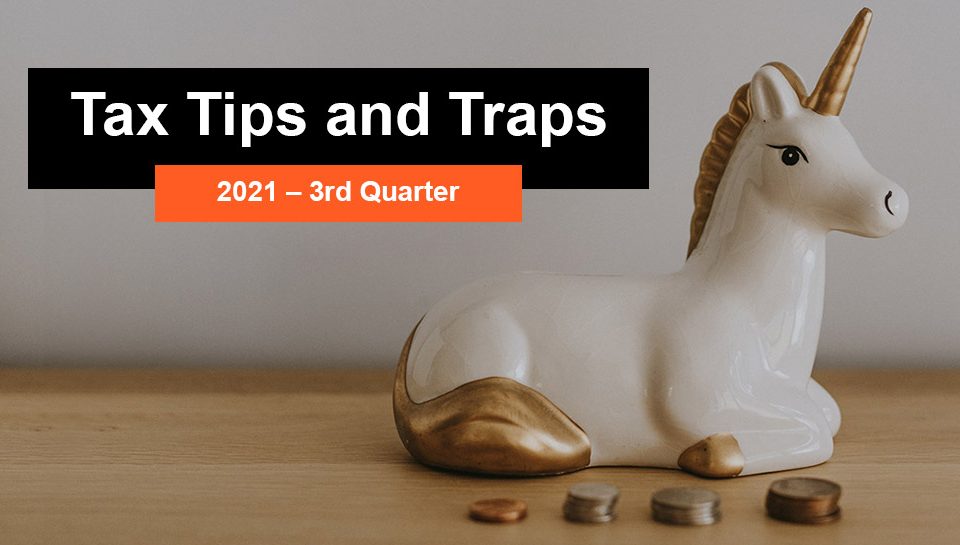
Can you deduct expenses if you’re forced to work from home in the pandemic?
May 9, 2020
Strapped for cash? How to uncover unclaimed money that may belong to you
July 15, 2020STARTING A BUSINESS AND NOT GETTING PAID: Can I collect EI?
In a January 10, 2020 Federal Court of Appeal case, the Court conducted a judicial review of the denial of the taxpayer’s EI benefits. While receiving benefits in 2010 and 2011, the taxpayer had incorporated a corporation and engaged in preliminary work to set up its business. In early 2015, the Canada Employment Insurance Commission (CEIC) was advised by CRA that the taxpayer had applied for a business registration number while collecting EI.
A taxpayer can operate a business while collecting EI benefits where his business activity is to such a minor extent that a person would not normally rely on that business activity as a principal means of livelihood. This is determined based on specific factors as follows:
- Time spent– the taxpayer spent significant time on the business but spent as much time looking for work. This did not minimize the significance of time spent setting up the business.
- Nature and amountof invested capital and resources – the taxpayer took on significant debt (over $100,000) to finance the business, weighing against the conclusion he was only involved to a minor extent.
- Financial success or failureof the business – little or no net income was generated while on EI, but the business had been open for five years by the time of the review and had become the taxpayer’s principal means of livelihood. The Court did not note what this factor indicated.
- Continuity of the business – the taxpayer’s continuous efforts to advance the business weighed against the conclusion that he was only involved to a minor extent.
- Nature of the business – the taxpayer had a strong desire to stay in his specialized industry, such as operating this business. The specific industry was not identified in the case.
- Intention and willingness to seek and accept alternate employment – the taxpayer’s submissions that the machines involved operated unsupervised for twelve to fourteen hours at a time, that he intended to find full-time employment and operate the business on a part-time basis, at least for a time, and that he was willing to take on full-time work at any time were accepted.
The CEIC’s conclusion that the taxpayer was not engaged to a sufficiently minor extent to benefit from the exception was reasonable. Further, CEIC’s reasons were transparent and intelligible and adequately justified that conclusion. In particular, the Court highlighted the substantial time and capital invested by the taxpayer. The application for judicial review was dismissed. The taxpayer was not eligible to collect EI.
ACTION ITEM: If uncertain as to whether you are eligible for EI given your involvement in a business, please contact an advisor.
___________________________________________________________________________
TIPS: Reporting Issues
Tips received by servers and other individuals in the service industry are taxable. However, since tips do not show up on T4 slips, some taxpayers are under the false understanding that they are either not taxable, or only partially taxable.
In a February 3, 2020 Federal Court of Appeal case, the Court upheld the Tax Court decision that tips received by the taxpayer from his employment as a slot attendant at a casino were properly included in income and were not a windfall or gift. Further, the Court upheld gross negligence penalties (an extra 50% of the taxes at stake) in coming to the conclusion that the taxpayer displayed a “dismissive and indifferent attitude” in failing to enquire as to whether he should report the tips.
The taxpayer also raised the issue of procedural fairness. The length of time CRA took to process his objection, the amount of interest owed, and the fact that CRA may have settled with other taxpayers were not relevant to the taxpayer’s case.
Canada Emergency Response Benefit (CERB)
During the COVID-19 shutdown of many businesses, many servers have relied on receiving payments under the CERB. To be eligible, the individual must have received at least $5,000 in 2019 (or in the 12 months prior to application), and cannot have earned more than $1,000 during the applicable four-week claim period (this rule varied slightly in the first claim period). Tips earned while working and declared as income counts toward $5,000 required previous earnings. Tips count towards the $1,000 test as well.
Canada Emergency Wage Subsidy (CEWS)
This subsidy, which aims to cover approximately 75% of the first portion of salaries, is dependent on the amount of “eligible remuneration” received by employees prior to, and during, the COVID-19 crisis. Controlled tips are included in eligible remuneration (and reported on T4 slips), direct tips are not. Controlled tips are those that an employer receives, controls (or possesses), and then pays an employee. Direct tips are those paid directly to the employee, or those in which the employer is merely a conduit (the employer has no control over the amount or distribution.
ACTION ITEM: If you have service staff, remind them that tips are taxable and that they will now matter for various reasons. There is more incentive for CRA to review them, and they have had success applying gross negligence penalties.
___________________________________________________________________________
UNCLAIMED BANK DEPOSITS OR PROPERTY: Could Christmas Come Early?
Unclaimed property refers to accounts at banks, financial institutions, and other organizations where there has been no activity generated or contact with the owner for a period. Typical forms of unclaimed property can include chequing or savings accounts, term deposits, Guaranteed Investment Certificates (GICs), bank drafts, traveller’s cheques, money orders, and certified cheques. A number of different organizations (depending on the governing legislation) collect these funds and administer the return to their rightful owner, where possible.
As banks fall under federal jurisdiction, they are required to report unclaimed funds to the Bank of Canada. To search the Bank of Canada database for unclaimed amounts, go to https://ubmswww.bank-banque-canada.ca/en/Property/SearchIndex. At the end of 2018 approximately 2 million unclaimed balances, valued at $816 million, were held by the bank, with $11 million being paid out in the year. Of interest, the oldest balance dates back to 1900.
Three provinces, Alberta, B.C. and Quebec, have unclaimed property legislation. Each province’s rules differ for determining when dormant accounts are “unclaimed”, reporting requirements, due diligence, and enforcement requirements. Information and a search engine for these provinces can be found at:
- Alberta – https://www.alberta.ca/unclaimed-property.aspx
- British Columbia – https://unclaimedpropertybc.ca/
- Quebec – https://www.revenuquebec.ca/en/site-map/map-of-the-unclaimed-property-section/
In addition, many states in the U.S. also have databases whereby unclaimed property may be searched. For more information and to be directed to information for particular states, go to the National Association of Unclaimed Property Administrators at https://www.unclaimed.org/.
ACTION ITEM: See if you are eligible to claim any unclaimed property.
___________________________________________________________________________
PROTECTING YOUR TAX INFORMATION: Comments from CRA
CRA released a Tax Tip (Protecting your personal information) on August 6, 2019 which provided various suggestions to safeguard tax information, including the following:
- Signing up for My Account or My Business Account and registering for email notifications. Notifications will be sent when paper mail is returned to CRA, or when certain other changes are made on one’s account.
- Using CRA protocols to authenticate a caller’s identity. An option is being introduced to set a unique Personal Identification Number which must be provided before a call centre agent can access the individual’s accounts.
- Verifying a purported CRA caller by requesting their badge number and calling the individual or business enquiries line for confirmation.
The Tip also provides guidance on steps individuals who may be victims of identity theft should take, including contacting CRA to request enhanced security measures be placed on their accounts.
ACTION ITEM: Review the above suggestions and adopt those that are appropriate.
___________________________________________________________________________
LOAN FROM A SIBLING’S CORPORATION: Is it Taxable?
In a July 8, 2019 Tax Court of Canada case, CRA had reassessed the taxpayer to add loans received from a corporation controlled by her brother and his wife to her income. Special rules apply to loans advanced from a corporation to a shareholder or a “connected person” (which includes any related person). These rules effectively require an income inclusion in the hands of the borrower if loans are not repaid by the end of the corporation’s year following the year in which the loan was advanced.
Loan from corporation – taxpayer loses
The Court held that the taxpayer had made a misrepresentation by failing to report the loans as income. Her knowledge that she had borrowed $45,000 from a corporation controlled by family members over the period from 2009 to 2012, and her failure to seek advice from anyone, including the corporation’s accountant, regarding the tax implications of such a loan was sufficient neglect or carelessness to permit reassessment of each year in which funds were advanced, even beyond the ordinary three-year reassessment period. As the loans had not been repaid in time, the full amounts were included in income.
ACTION ITEM: Advice should be sought if you currently have, or are considering, personal loans to a shareholder of a corporation, or a family member.
___________________________________________________________________________
EMPLOYMENT EXPENSES: Commuting?
In an August 15, 2019 Tax Court of Canada case, at issue was the deductibility of a number of employment expenses (primarily travel, lodging and motor vehicle expenses) incurred by the taxpayer. While the taxpayer resided in Ottawa, he signed an employment contract with a company based in Regina. The employment contract stated that the new employment position would be “based from our yet to be determined office in Ottawa, Ontario.” For the 2012 and 2013 tax years, the taxpayer shuttled by air between Ottawa and Regina weekly. In order to deduct travel costs incurred by the employee, the employee must have been required to travel away from the employer’s place of business.
The taxpayer argued that his home in Ottawa was a place of employment, and therefore, costs of travel between his work location in Ottawa, and the work location in Regina, were deductible as they were incurred in the course of employment.
Taxpayer loses, mostly
The Court rejected the taxpayer’s assertion, finding that the employer did not have a place of business in Ottawa. The Court observed that the fact that the employee might choose to “squeeze in” work (in this case on some Mondays or Fridays) at his home in Ottawa did not, without more, constitute the home being an employment location. Further, there were no photographs of the home office, testimony describing it, or home office expenses claimed. The Court stated that the employment contract did not alter its decision as there was no evidence that the employer made any effort to find an office in Ottawa, and no evidence related to work pertinent to Ottawa was provided.
As such, travel between Ottawa and Regina was personal, and the associated lodging and travel costs were denied.
The Court also reiterated that the appeal was considered without regard to the distance between the employee’s home and the employer assigned office: the two locations could be in the same municipality or different provinces. In other words, commuting to work, no matter how far, is considered personal. However, note that there are some exceptions to this rule, such as where the individual travels to a temporary special work site, or a remote work location.
ACTION ITEM: If considering the acceptance of employment that requires significant commuting, consider that the commuting costs likely will not be deductible.
___________________________________________________________________________
REAL ESTATE SALES: Taxable or not?
In general, gains are fully taxable where the taxpayer buys a property with the intention to sell for a profit (sold on “account of income”). In other cases, half the gain is taxable (sold on “account of capital”). When a sale on “account of capital” involves the sale of a principal residence, the tax may be reduced or eliminated by using the principal residence exemption.
In a December 13, 2019 French Tax Court of Canada case, at issue was whether two apartment buildings sold by the taxpayer were on account of capital (as filed by the taxpayer) or income (as assessed by CRA).
After acquiring the two apartment buildings, the taxpayer paid the tenants to voluntarily vacate their leases. The buildings were then renovated and sold for a profit. The taxpayer argued that it was only after the discovery of fundamental structural problems with the properties that the original plan to rent the units changed, and that the taxpayer decided to resell both buildings.
Taxpayer loses
The Court did not accept the taxpayer’s argument that the corporation did not have the funds to finance the renovations required due to the substantial structural problems, as it paid large amounts to the tenants to vacate the property. Also, it concluded that it was highly improbable that, at the time of acquisition, the taxpayer was not aware of the extent of the problems affecting the properties.
The following factors were also considered to indicate the property was acquired for resale:
- the period of ownership (up to 18 months) was very short;
- the director of the corporation was an experienced real estate businessman, indicating that he would likely have known he could make a profit by buying and selling the buildings quickly;
- the buildings were located in a popular and highly sought-after area of Montreal; and
- one of the buildings was funded fully by debt, with the other largely financed by debt. A portion of the purchase price was not due until a number of months after sale.
The Court ruled that, on the balance of probabilities, the intention of the taxpayer was to resell the properties at a profit. The sale was therefore on account of income and fully taxable.
ACTION ITEMS: Retain documentation, (emails, letters etc.), which occurred at or around the time of purchase to support your position as to whether the property was acquired on account of income or capital.
___________________________________________________________________________
CONTRIBUTIONS OF GOODS OR SERVICES TO AN NPO: Tax Implications
In a January 6, 2020 Technical Interpretation, CRA considered whether a deduction was available to suppliers who contributed in-kind goods or services to an NPO with the expectation that they would benefit from word of mouth advertising and promotion.
Where the supplier is providing goods or services to an NPO in exchange for advertising and/or promotional services, a barter transaction may have occurred. As such, the typical rules for barter transactions would apply. In arm’s length barter transactions, the income is the price which the taxpayer would normally have charged a stranger for his services or goods/property. Where capital property is provided as part of the barter transaction, the value of the property would be considered proceeds of disposition. The expense for the goods or services received by a taxpayer is generally the same amount as the value of the goods or services given up, adjusted for any cash given or received as part of the transaction. Additional information on barter transactions can be found in Interpretation Bulletin IT-490, Barter Transactions.
For example, where a landscaper barters landscaping services to an NPO in exchange for advertising and promotion for their business, the landscaper would be required to include the value of the services provided to the NPO in its income. The landscaper would claim an equal deduction for advertising and promotion. The landscaper could also deduct costs of providing the landscaping services.
ACTION ITEM: When contributing goods or services, recognize that the deduction, in essence, is limited to the cost of producing and delivering the good or service, rather than its fair market value.
___________________________________________________________________________
HOME ACCESSIBILITY RENOVATION CREDIT: Increase in Home Value?
When applying for the home accessibility tax credit (HATC), valued at 15% of up to $10,000 in expenditures per year, does it matter if the renovation increases the value of my home? Yes, and No.
In a December 12, 2019 Tax Court of Canada case, at issue was whether the taxpayer was eligible for a HATC claim for $10,000 of qualifying renovations for the 2016 year, the first year of this credit. The taxpayer’s spouse was 76 years old and suffered from reduced mobility. The taxpayer incurred $11,000 in renovation costs at the taxpayer’s home to remove steps the Court referred to as “rickety” and which had no railing or landing area with a very sturdy deck including a 5-foot wide stairway and aluminum railings.
CRA denied the claim on the basis that the renovations did not meet the definition of a “qualified renovation” and even if they did, they would be ineligible as they were made to enhance or maintain the value of the house. Note that a taxpayer is precluded from claiming the HATC where the primary intention of the renovation is to increase or maintain the value of the property. There was no dispute as to the wife being an “eligible individual”, the house being an “eligible dwelling”, and the taxpayer being a “qualified individual”.
Taxpayer wins
Qualifying renovation
The Court indicated that the taxpayer satisfied almost all, if not all, of the legislatively required purposes that the renovation assists with: gaining access to a dwelling, or mobility, access, functionality or reduction of harm within a dwelling (only one of these five purposes is required to satisfy this component of the definition). In addition, the Court observed that the renovations were of an “enduring and integral nature to the dwelling”. Both of these conditions (the “purpose” and “enduring and integral” tests) are required to meet the definition of a “qualifying renovation”.
Increase or maintain value of property
Although the entrance was considered substandard by the taxpayer many years prior, it was not replaced earlier nor in contemplation of a sale. Instead, the renovations were undertaken when the taxpayer’s wife’s mobility from age and affliction demanded them. The link between the health purpose and the renovations, and the absence of any other clear indication that the purpose was economic, indicated that the primary purpose was not to increase or maintain the value of the property. The fact that the renovation may also increase or maintain the value of a property was not sufficient to deny the claim.
The Court allowed the full HATC claim.
The Court also stated that “if the drain on the federal treasury is too great because of the existing wording, then Parliament can repeal or amend its textually clear provisions. Until then, the Minister and her agents must have some prominent factual basis for asserting a taxpayer’s primary economic purpose in undertaking these improvements before this exclusion is invoked.”
Note: A “qualifying individual” must either be 65 or older before the end of the taxation year or eligible for the disability tax credit for renovations to their “eligible dwelling” to qualify for the HATC.
ACTION ITEM: Make sure to keep all receipts for renovations that may qualify. Some renovations may also be eligible for a medical tax credit.
___________________________________________________________________________
WORKING FROM HOME DURING COVID-19: Home Office Expenses
In order for home office expenses to be deductible against employment income, the employee must be required by contract to incur such expenses, and one of the following has to be met:
- The home is where the employee principally (more than 50% of the time) does their work.
- The employee uses the space exclusively to earn employment income, and it is used on a regular and ongoing basis for meeting clients, customers or other people in the course of performing employment duties.
Given that the COVID-19 pandemic has required many to work from home, many more will likely be eligible under (i) than in previous years. However, at question is whether the workspace must be the main place of work in context of the entire year or just a specific period, such as the several months dictated by preventative COVID-19 measures. While CRA has not yet provided their comment, the tax preparation community has been pushing for guidance in time for next tax filing season.
If qualifying under provision (ii), a problematic issue is the requirement for regular and ongoing meetings. CRA has stated that those meetings must be in person; many tax publishers and journalists have noted that position is outdated and should include video and teleconference meetings as well.
What expenses are deductible?
A portion of household costs can be deducted, such as electricity, heating, water, rent, security and maintenance. If, and only if, the individual is a commissioned salesperson, a portion of property tax and insurance can also be deducted. No employee (neither commissioned sales persons nor regular employees) can deduct mortgage interest or capital cost allowance.
When calculating the deductible percentage, a reasonable basis should be used, such as the area of the workspace divided by the total finished area (including hallways, bathrooms, kitchens, etc.). Expenditures that relate solely to the workspace and employment duties do not have to be prorated.
Other cautions
In addition, the employee must:
- obtain a completed T2200 (Declaration of Conditions of Employment) from the employer;
- prorate the personal usage based on space (portion of house) and time (portion of the day used for work);
- prorate expenses that do not relate to the portion of the year when working from home; and
- limit expenses to the amount of related income earned during the year.
For more information, see CRA Guide T4044.
ACTION ITEM: If uncertain as to whether your home office expenses are deductible, retain receipts so that a determination can be made as CRA rolls out more guidance and as the filing season approaches.
___________________________________________________________________________
BUSINESS USE OF THE HOME: Eligible Expenses
A November 27, 2019 French Tax Court of Canada case reviewed various deductions claimed against the taxpayer’s business income derived from engineering and arbitration services related to the business use of his home. The taxpayer and CRA had agreed that 35.83% of the home, mainly the basement which was used as a business office, was used for business purposes.
CRA had disallowed gardening and swimming pool maintenance costs which the taxpayer argued were business related as he met clients at his home and sometimes conducted arbitrations in the garden. He also argued that there was no personal use of the pool, but clients sometimes used it. CRA had also disallowed costs for repair and renovation of the living room, which the taxpayer argued made that room suitable for hosting arbitrations.
Taxpayer wins – in part
The Court accepted that the gardening expenses were ordinary home maintenance costs, deductible in proportion to business use of the home (35.83% as noted above), allowing a deduction of $1,271. The pool expenses were not allowed, on the basis these were not ordinary expenses of a business of this nature, and the Court was not convinced that clients used the pool. It was not relevant that the taxpayer and his wife did not use the pool.
Claims for repairs and renovations to the living room were denied as the taxpayer had ample space in the basement office and the garden to host arbitrations and conduct his other business activities. The living room was not part of the floor space making up the agreed 35.83% business portion of the home. As well, the evidence showed the renovations were required to comply with city regulations, including removal of a wood fireplace.
ACTION ITEM: Consider which portions of the home, and which expenditures clearly tie to the business use of your home. Retain and obtain documents (like client emails and photos of work-spaces), which demonstrate how different portions of the home were used for business, and to what extent.
___________________________________________________________________________
UNCOLLECTIBLE ACCOUNTS: Making Them Valuable
Tax Possibilities – Bad Debt Write-off
As many businesses are struggling to collect outstanding amounts, it may be worthwhile to identify any receivables which have previously been included in income that can be written off as bad debts. This allows for a deductible expense to reduce taxes. A number of factors should be considered, including:
- the history and age of the debt;
- the financial position of the debtor, its revenues and expenses, whether it is earning income or incurring losses, its cash flow and its assets, liabilities and liquidity. These should be compared to prior years as well;
- changes in total sales as compared with prior years;
- the general business conditions in the country, the community of the debtor, and in the debtor’s line of business; and
- the past experience of the taxpayer with writing off bad debts.
While the expense as a result of the bad debt will provide relief on the filing of the tax return associated with that period, GST/HST can generally be recovered sooner on the filing of the return for the period. So, for a monthly remitter with a December year-end, a bad debt with GST/HST written off in April would yield a GST/HST refund when the April GST/HST return is filed. The expense would be claimed in the following year when the tax return for the December 31 year-end is filed.
While a bad debt is one that will not be collected in the future, a business may claim a reserve for doubtful account which is a reasonable amount in respect of doubtful accounts. The reserve for doubtful debts claimed in one year must be included in income in the next subject to a new reserve being taken in that following year. The GST/HST on a doubtful account is not recoverable – the debt must be entirely bad to recover GST/HST.
Business Possibility – 1414All
If planning on writing off amounts, consider asking the client to pay-it-forward using the 1414All model. It puts your business, the client, and the community in a more positive place. It changes the tone of the interaction from one of negativity and loss, to one of building and hope.
The same concept could be used if you are providing goods or services for free to help clients out during these challenging times.
How would it work?
Let’s say that $100 is owed but the client can only pay $20 and you were going to writeoff $80 anyways. In exchange for the $80 write-off, ask the client to simply:
- Pay-it-forward by making their community a little better in whatever way they can, when they can;
- Post about it on social media (Linked-in, Twitter, facebook etc.) using #1414All with something like: “Thanks for consultation work ABC Co. (mentioning your company name is optional), I paid it forward by delivering groceries to a neighbour! #1414All”
The bottom line is that an intentional ask is made for the good deed to be paid forward, and that accountability is added by requesting that they post about it (or if they are social media shy, that they send you an email). Some clients may be unsure what they can do to pay-it-forward. In those cases, send them to 1414All.org for ideas.
The impact
Positive, unique, and authentic goodwill actions in times of emotional and financial distress are highly memorable. By specifically asking clients to do something good, you’ve: involved them in a positive action; given them the opportunity to feel like they’ve paid off a debt when they may not have thought it possible; demonstrated your commitment to the community; and started a chain of goodwill.
ACTION ITEM: Review outstanding accounts for potential write-offs. Consider implementing a 1414All pay-it-forward policy.
___________________________________________________________________________







